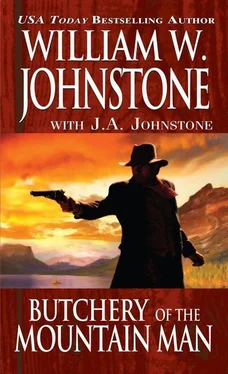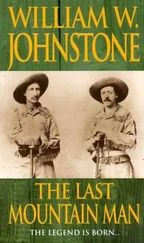The next restaurant accepted them without question, and not until they were seated at a table in the back of the room did Claire allow herself to laugh.
“Why are you laughing?”
“Did you see their faces? They were like this.” Claire lifted her eyebrows, and opened her mouth, simulating an expression of shock.
“Yes, I suppose I did go a bit too far there.”
Claire giggled again. “Yes, cutting his nose here,” she put her finger to her nose septum, “is a bit too far.”
“Claire, will you marry me?” John asked.
“What? But we are already married.”
“No. I mean will you marry me by the law of the white man? My father is an Episcopal priest. I want to find an Episcopal church and I want us to get married. No, wait, if we do that, we’ll have to post banns and that will take too long. I’ll find us a circuit judge, he can marry us, then I’ll get a priest to bless the marriage. When we go back, we will go back as legally married husband and wife.”
Two hours later, having been married by a circuit court judge, John and Claire, with Kirby, stepped into St. Mark’s Episcopal Church in south St. Louis. John dipped his fingers into the basin of holy water and crossed himself. Because he had taught Claire some of the liturgy of the church, she did so as well.
They walked to the front and knelt at the altar rail. They were there when the priest stepped out of his study and saw them. The priest waited until they both rose.
“Good afternoon,” the priest said. “May I help you?”
“Yes, Father. We are married, but it was a civil ceremony. I would like to ask that you bless our marriage.”
“You are Episcopalian?”
“Yes, my father is an Episcopalian priest back in Pennsylvania. His name is Nathaniel Jackson.”
The priest’s eyes widened. “Is he by chance the author of A Book of Rites for the Use of Congregations of the Protestant Episcopal Church ?”
“He is,” John said.
The priest smiled and extended his hand. “My name is Sharkey. Bill Sharkey. I am most pleased to meet you, sir.”
“I am John Jackson, and this is my wife, Claire, and our baby, Kirby. I have baptized both of them, simply because we live so far from any church. I would like you to validate the baptisms as well.”
“I would be happy to do so,” Father Sharkey said.
It was as Mr. and Mrs. John Jackson that they, with their baby, boarded the train in St. Louis for the long trip back. Because he had enough money to do so, they took passage on the Palace Car.
For the first part of the trip, there were only six people in the car: John, Claire, and Kirby, plus one other couple, and a man dressed as a clergyman, who was traveling alone. The clergyman kept staring at Claire and the baby with an obvious look of displeasure on his face. Finally he spoke.
“You are in violation of God’s law,” he said.
“I beg your pardon, Parson, did you say something?” John asked.
“I said you are sinners, both of you. Cohabitation without marriage is a sin. Whoremongers and adulterers God will judge.”
“Well, Parson, it’s none of your business, but it so happens that we are married.”
The parson shook his head. “No, that ain’t possible. God don’t hold with white men marryin’ savages.”
“Oh? Would you mind telling me where, in the Bible, it says that?”
“Ezra 10:2–3. ‘We have taken strange wives of the people of the land, yet now there is hope in Israel concerning this thing. Now therefore let us make a covenant with our God to put away all the wives, and such as are born of them,’” the parson said, sanctimoniously.
“Colossians 3:11. ‘There is no distinction between Greek and Jew, circumcised and uncircumcised, barbarian, Scythian, slave and freeman, but Christ is all, and in all.’” John replied
“How dare you, sir!” the parson said, pointing a long, bony finger at John. “How dare you quote scripture to a man of Gawd?”
“You call yourself a man of God. Yet ‘you love all words that devour, oh deceitful tongue.’ Psalm 52:4,” John said.
“You . . . you know your scripture, sir,” the parson said, surprised by John’s Bible acumen.
“I do.”
“Then why in Gawd’s name would you marry an Indian whore?” he shouted at the top of his lungs.
“Mister, and I’m not calling you parson anymore, because by your words, you have proven yourself to be unworthy of that title. So I’m telling you now to leave this car, and don’t come back in until either you, or we, leave this train. And we won’t be leaving this train for a thousand miles.”
“I will not leave this car,” the parson said, angrily. “I paid for my passage.”
“Here is ten dollars,” John said, handing the parson a bill. “Now, get out of this car and stay out.”
“You have no right to order me out.”
“Oh, it isn’t a question of whether I have the right,” John said. He smiled, but it was a taunting smile. “It’s a question of whether I am capable of grabbing you by the scruff of your neck and the seat of your pants and bodily throwing you off this train. And believe me, sir, I am. Now your choice is simple. Leave this car now, of your own accord, or I will throw you off the train.”
“You wouldn’t dare, sir!” the parson said, confidently.
“Shall we see?”
John walked over to him and grabbed him by his shirt and the seat of his pants and started moving him toward the door. “I wonder if you will bounce,” John said.
“No! No! God in heaven, man, don’t do it! Don’t do it!”
“You’ll leave of your own volition?”
“I will, I will!”
John took his hands away.
“Here’s another thing,” John said. “Don’t let me see you again. When we are in the dining car, don’t you come in. If we get off the train for a few minutes in some station, don’t you be where I can see you. Do you understand that? I don’t want to see your ugly face again, ever, anywhere.”
“You . . . you have no right . . .”
“I thought we had already discussed that,” John said. He shook his head. “I told you, I don’t care whether I have the right or not. Now, get.”
The preacher licked his lips a couple of times, then, turning, he hurried out through the front door of the car.
John looked at the other couple in the car, an older man and woman who had been watching the whole thing.
“Ma’am, sir, I’m sorry about that,” he said. “But I’ve always believed that it was the duty of a man to look after his wife and family. And that means to shield them from all hostility, whether by word or action.”
“Young man, you have nothing to apologize for,” the elderly man said. “You had every right to protect your family.”
“And your wife and baby are beautiful,” the elderly woman added.
“Thank you, I think so myself. Of course, I might be just a little prejudiced,” John said with a smile. “Would you care to join my family and me in the dining car for lunch? I would be delighted to have you as our guests.”
“Why, yes, we would be happy to. Thank you very much, young man.”
A few minutes later, John, Claire, Kirby, and the man and woman who had accepted John’s invitation were enjoying their lunch in the dining car. Their names were Mr. and Mrs. George Upton. Mr. Upton was a retired college professor from Washington University in St. Louis. They were on their way to California because, as Upton explained, he had always wanted to see what was beyond the setting sun.
“I remember as a young man, seeing so many people coming through St. Louis, bound for California,” Upton said. “That is how St. Louis acquired the name the Gateway City, you know.”
“So I’ve heard,” John replied.
Читать дальше












